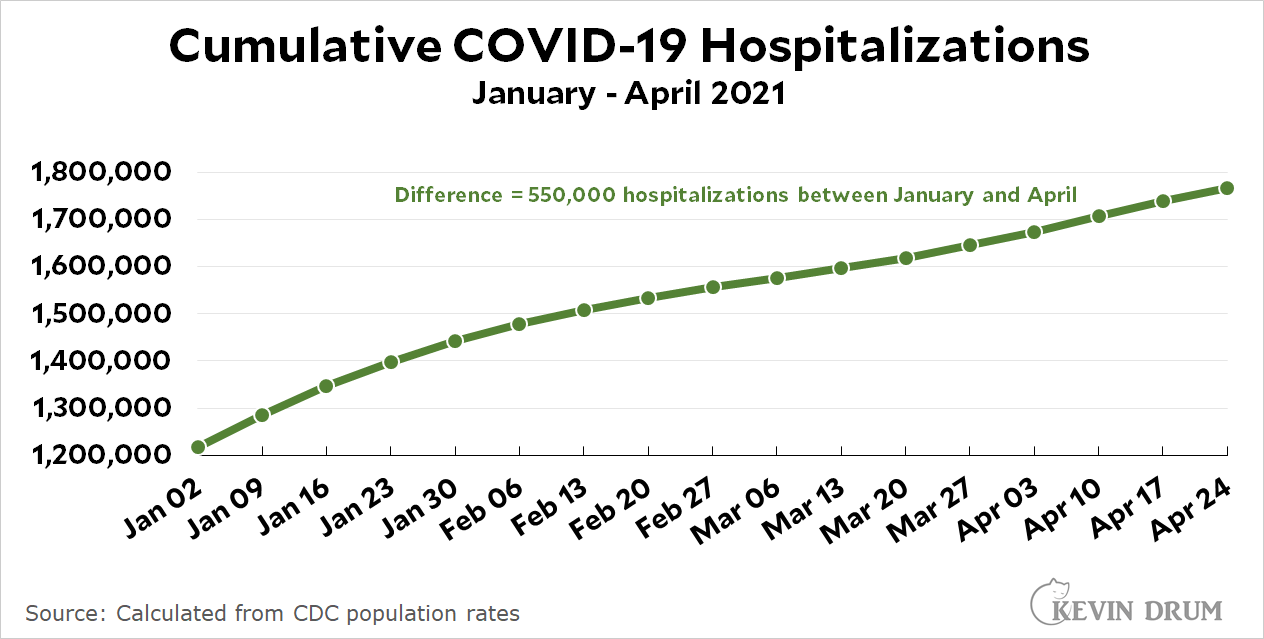This is a surprisingly difficult number to get a handle on. The CDC provides us with the following approximate figures since vaccinations started through April 26:
- Total hospitalizations: about 550,000
- Total hospitalizations among those vaccinated ("breakthrough cases"): about 1,000. This is a known undercount, so let's double it to 2,000.

By the end of this period, about 100 million people were fully vaccinated and 200 million remained unvaccinated. This means that as an average over the entire period, 50 million people were fully vaccinated and 250 million remained unvaccinated.
Put this together with the hospitalization figures and the final tally tells us that 548,000 out of 250 million unvaccinated people were hospitalized vs. 2,000 out of 50 million vaccinated people.
This means that about 0.22% of the unvaccinated population ended up in the hospital with COVID-19 compared to 0.004% of the vaccinated population. That's a difference of 55:1.
In other words, if you are unvaccinated, your odds of getting a case of COVID-19 serious enough to require hospitalization are 55 times higher than they are if you get the vaccination.
Why such a big difference? There are two factors. First, the vaccines prevent infections by a factor of about 10-20:1. Second, if you are infected, the vaccines help to prevent you from getting a serious case. Put those two things together, and you get the 55:1 difference in serious infections.

It is even better than that: remember that the vaccinated population (especially in the early part of the time period) skews towards the vulnerable (e.g., the elderly) and the highly likely to be exposed (e.g., nurses, teachers), so would be expected to have a _higher_ hospitalization rate than the general public.
(working against that: the vaccinated are probably people who are more careful relative to those who aren't interested in getting vaccines, so maybe a bit less exposure there)
Basically I agree, but I and several other commenters have noted that since getting vaccinated, we have relaxed our social distancing, so that cuts the other way from the second factor mentioned.
Well that is the point of getting vaccinated. But ventilation is more important than distancing unless someone actually sneezes on you.
"But ventilation is more important than distancing unless someone actually sneezes on you."
Or coughs on you, or is shouting at you, or singing near you... Agreed that ventilation is the primary thing, but there are still some situations where social distancing makes sense even for vaccinated people.
Also, that ventilation goes somewhere, so... don't be down wind.
While I have also relaxed my social distancing, I wouldn't be surprised if my "relaxed" version of distancing was still more cautious than the average unvaxxed person's behavior in the midst of the pandemic.
I guess we shall see soon enough. The Great Summer of Socializing is commencing.